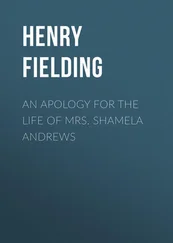Henry Fielding - The History of the Life of the Late Mr. Jonathan Wild the Great
Здесь есть возможность читать онлайн «Henry Fielding - The History of the Life of the Late Mr. Jonathan Wild the Great» — ознакомительный отрывок электронной книги совершенно бесплатно, а после прочтения отрывка купить полную версию. В некоторых случаях можно слушать аудио, скачать через торрент в формате fb2 и присутствует краткое содержание. Жанр: foreign_prose, foreign_antique, foreign_sf, на английском языке. Описание произведения, (предисловие) а так же отзывы посетителей доступны на портале библиотеки ЛибКат.
- Название:The History of the Life of the Late Mr. Jonathan Wild the Great
- Автор:
- Жанр:
- Год:неизвестен
- ISBN:нет данных
- Рейтинг книги:3 / 5. Голосов: 1
-
Избранное:Добавить в избранное
- Отзывы:
-
Ваша оценка:
- 60
- 1
- 2
- 3
- 4
- 5
The History of the Life of the Late Mr. Jonathan Wild the Great: краткое содержание, описание и аннотация
Предлагаем к чтению аннотацию, описание, краткое содержание или предисловие (зависит от того, что написал сам автор книги «The History of the Life of the Late Mr. Jonathan Wild the Great»). Если вы не нашли необходимую информацию о книге — напишите в комментариях, мы постараемся отыскать её.
The History of the Life of the Late Mr. Jonathan Wild the Great — читать онлайн ознакомительный отрывок
Ниже представлен текст книги, разбитый по страницам. Система сохранения места последней прочитанной страницы, позволяет с удобством читать онлайн бесплатно книгу «The History of the Life of the Late Mr. Jonathan Wild the Great», без необходимости каждый раз заново искать на чём Вы остановились. Поставьте закладку, и сможете в любой момент перейти на страницу, на которой закончили чтение.
Интервал:
Закладка:
Henry Fielding
The History of the Life of the Late Mr. Jonathan Wild the Great
INTRODUCTION
Jonathan Wild, born about 1682 and executed at Tyburn in 1725, was one of the most notorious criminals of his age. His resemblance to the hero in Fielding's satire of the same name is general rather than particular. The real Jonathan (whose legitimate business was that of a buckle-maker) like Fielding's, won his fame, not as a robber himself, but as an informer, and a receiver of stolen goods. His method was to restore these to the owners on receipt of a commission, which was generally pretty large, pretending that he had paid the whole of it to the thieves, whom for disinterested motives he had traced. He was a great organiser, and he controlled various bands of robbers whose lives he did not hesitate to sacrifice, when his own was in danger. Naturally he was so hated by many of his underlings that it is a wonder he was able to maintain his authority over them as many years as he did. His rascality had been notorious a long time before his crimes could actually be proved. He was executed at last according to the statute which made receivers of stolen goods equally guilty with the stealers.
Beyond this general resemblance, the adventures of the real Jonathan, so far as we know them, are not much like those of the fictitious. True, the real Jonathan's married life was unhappy, though his quarrel with his wife did not follow so hard upon his wedding as the quarrel of Fielding's hero and the chaste Laetitia. Not until a year from his marriage did the real Jonathan separate from his spouse, after which time he lived, like Fielding's, not always mindful of his vows of faithfulness. Like Fielding's, too, he was called upon to suppress rebellions in his gangs, and once he came very near being killed in a court of justice by one Blake, alias Blueskin. Apart from these misadventures, the experiences of Fielding's Wild seem to be purely imaginary. "My narrative is rather of such actions which he might have performed," the author himself says, [Footnote: Introduction to Miscellanies, 1st ed., p. xvii.] "or would, or should have performed, than what he really did. … The Life and Actions of the Late Jonathan Wild, got out with characteristic commercial energy by Defoe, soon after the criminal's execution, is very different from Fielding's satirical narrative, and probably a good deal nearer the truth."
Jonathan Wild was published as the third volume of the Miscellanies "by Henry Fielding, Esq." which came out in the spring of 1743. From the reference to Lady Booby's steward, Peter Pounce, in Book II., it seems to have been, as Mr. Austin Dobson has observed, and as the date of publication would imply, composed in part at least subsequently to Joseph Andrews, which appeared early in 1742. But the same critic goes on to say that whenever completed, Jonathan Wild was probably "planned and begun before Joseph Andrews was published, as it is in the highest degree improbable that Fielding, always carefully watching the public taste, would have followed up that fortunate adventure in a new direction by a work so entirely different from it as Jonathan Wild." [Footnote: Henry Fielding, 1900, p. 145.] Mr. Dobson's surmise is undoubtedly correct. The "strange, surprising adventures" of Mrs. Heartfree belong to a different school of fiction from that with which we commonly associate Fielding. They are such as we should expect one of Defoe's characters to go through, rather than a woman whose creator had been gratified only a year before at the favourable reception accorded to Fanny and Lady Booby and Mrs. Slipslop.
That Jonathan Wild is for the most part a magnificent example of sustained irony, one of the best in our literature, critics have generally agreed. The comparison steadfastly insisted upon between Jonathan Wild's greatness and the greatness which the world looks up to, but which without being called criminal is yet devoid of humanity, is admirable. Admirable, too, is the ironical humour, in which Fielding so excelled, and which in Jonathan Wild he seldom drops. It would take too long to mention all the particularly good ironical passages, but among them are the conversation between Wild and Count La Ruse, and the description of Miss Tishy Snap in the first book; the adventures of Wild in the boat at the end of the second book; and, in the last, the dialogue between the ordinary of Newgate and the hero, the death of Wild, and the chapter which sets forth his character and his maxims for attaining greatness. And yet as a satire Jonathan Wild is not perfect. Fielding himself hits upon its one fault, when, in the last book, after the long narrative of Mrs. Heartfree's adventures by sea and by land, he says, "we have already perhaps detained our reader too long … from the consideration of our hero." He has detained us far too long. A story containing so much irony as Jonathan Wild should be an undeviating satire like A Tale of a Tub. The introduction of characters like the Heartfrees, who are meant to enlist a reader's sympathy, spoils the unity. True, the way they appear at first is all very well. Heartfree is "a silly fellow," possessed of several great weaknesses of mind, being "good-natured, friendly, and generous to a great excess," and devoted to the "silly woman," his wife. But later Fielding becomes so much interested in the pair that he drops his ironical tone. Unfortunately, however, in depicting them, he has not met with his usual success in depicting amiable characters. The exemplary couple, together with their children and Friendly, are much less real than the villain and his fellows. And so the importance of the Heartfrees in Jonathan Wild seems to me a double blemish. A satire is not truth, and yet in Mr. and Mrs. Heartfree Fielding has tried – though not with success – to give us virtuous characters who are truly human. The consequence is that Jonathan Wild just fails of being a consistently brilliant satire.
As to its place among Fielding's works, critics have differed considerably. The opinion of Scott found little in Jonathan Wild to praise, but then it is evident from what he says, that Scott missed the point of the satire. [Footnote: Henry Fielding in Biographical and Critical Notices of Eminent Novelists. "It is not easy to see what Fielding proposed to himself by a picture of complete vice, unrelieved by anything of human feeling. …"]. Some other critics have been neither more friendly than Sir Walter, nor more discriminating, in speaking of Jonathan Wild and Smollett's Count Fathom in the same breath, as if they were similar either in purpose or in merit. Fathom is a romantic picaresque novel, with a possibly edifying, but most unnatural reformation of the villainous hero at the last; Jonathan Wild is a pretty consistent picaresque satire, in which the hero ends where Fathom by all rights should have ended, – on the gallows. Fathom is the weakest of all its author's novels; Jonathan Wild is not properly one of Fielding's novels at all, but a work only a little below them. For below them I cannot help thinking it, in spite of the opinion of a critic of taste and judgment so excellent as Professor Saintsbury's. When this gentleman, in his introduction to Jonathan Wild, in a recent English edition of Fielding's works, says that: "Fielding has written no greater book," he seems to me to give excessive praise to a work of such great merit that only its deserved praise is ample.
A great satire, I should say, is never the equal of a great novel. In the introductions which I have already written, in trying to show what a great novel is, I have said that an essential part of such a book is the reality of its scenes and characters. Now scenes and characters will not seem real, unless there is in them the right blend of pleasure and pain, of good and bad; for life is not all either one thing or the other, nor has it ever been so.
Читать дальшеИнтервал:
Закладка:
Похожие книги на «The History of the Life of the Late Mr. Jonathan Wild the Great»
Представляем Вашему вниманию похожие книги на «The History of the Life of the Late Mr. Jonathan Wild the Great» списком для выбора. Мы отобрали схожую по названию и смыслу литературу в надежде предоставить читателям больше вариантов отыскать новые, интересные, ещё непрочитанные произведения.
Обсуждение, отзывы о книге «The History of the Life of the Late Mr. Jonathan Wild the Great» и просто собственные мнения читателей. Оставьте ваши комментарии, напишите, что Вы думаете о произведении, его смысле или главных героях. Укажите что конкретно понравилось, а что нет, и почему Вы так считаете.












